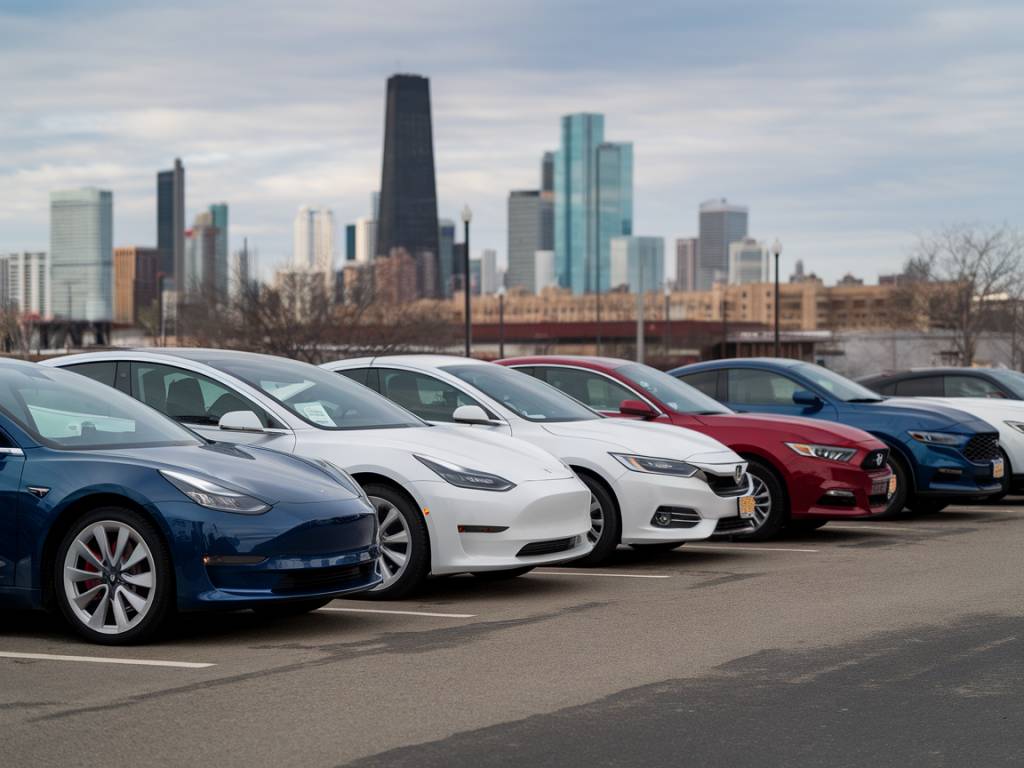As the automotive landscape rapidly evolves, the debate between electric cars (EVs) and gasoline cars remains a hot topic. For potential car buyers, one of the most critical factors to consider is the cost of ownership. This article delves into a detailed cost comparison between electric and gasoline cars over a five-year period.
Initial Purchase Price
The initial purchase price is often a major deterrent for prospective electric car buyers. Generally, electric cars tend to have a higher upfront cost compared to their gasoline counterparts. This price discrepancy can be attributed to the cost of battery technology, which remains relatively high despite significant advancements over recent years.
For instance, the 2023 Nissan Leaf, a popular electric vehicle, starts at around $28,000, whereas a 2023 Honda Civic, a comparable gasoline car, starts at approximately $22,000. This initial price difference can influence the overall cost of ownership significantly over time.
Federal and State Incentives
However, prospective EV buyers should not overlook federal and state incentives designed to make electric cars more affordable. In the United States, federal tax incentives can offer up to $7,500 for eligible electric vehicles. Additionally, numerous states provide rebates, tax credits, or other financial incentives that can further reduce the initial purchase price of an EV.
For instance, buyers in California can receive a state rebate of up to $2,000 for eligible electric cars. When combined with the federal tax credit, the net cost of an electric car can be substantially reduced, potentially closing the gap between the initial prices of electric and gasoline cars.
Fuel Costs
One of the most significant advantages of electric cars is the lower cost of ‘fuel’. On average, electricity is cheaper than gasoline, and the cost per mile for driving an electric vehicle tends to be considerably lower. According to the U.S. Department of Energy, the national average cost of electricity is around $0.13 per kilowatt-hour (kWh).
For example, if an electric car has an efficiency of 25 kWh per 100 miles, the cost to drive 100 miles would be approximately $3.25. In contrast, a gasoline car that achieves 30 miles per gallon (mpg) with a gas price of $3.00 per gallon would cost around $10 to drive the same distance. Over five years, this difference in fuel costs can amount to significant savings for electric car owners.
Maintenance Costs
Electric cars have fewer moving parts than gasoline cars, which usually translates to lower maintenance requirements. EVs do not have components such as oil filters, spark plugs, or timing belts, which need regular servicing and replacements in gasoline cars. Additionally, electric drivetrains experience less wear and tear compared to internal combustion engines.
According to Consumer Reports, electric cars typically cost about 50% less to maintain compared to gasoline cars over their lifetime. Routine maintenance for an electric vehicle can be limited to tire rotations, brake servicing, and occasional battery checks. This reduction in mechanical complexity and maintenance needs results in lower annual maintenance costs for electric vehicle owners.
Depreciation
Depreciation is another critical factor to consider in cost comparison. Historically, electric cars have experienced higher depreciation rates than gasoline cars, primarily due to concerns over battery life, technological obsolescence, and a smaller used car market. However, this trend is gradually changing as electric vehicles become more mainstream and as manufacturers offer longer battery warranties and improved technologies.
For instance, Tesla offers an eight-year or 150,000-mile battery warranty for its Model S, which has helped alleviate some concerns over long-term reliability and depreciation. Nevertheless, depreciation rates can vary widely based on the make and model of the vehicle, and it remains a variable to closely watch when comparing total costs over five years.
Charging Infrastructure
The availability and accessibility of charging infrastructure are crucial factors influencing the adoption of electric cars. While the cost of installing a home charging station can range from $500 to $2,000, this is a one-time expense that can provide significant convenience and savings in the long run.
Public charging stations, including Level 2 and DC fast chargers, can also play a role in the overall cost of ownership. Many public chargers offer free or low-cost charging services, especially in areas where local governments or businesses subsidize the charging infrastructure. However, the charging rates at commercial fast-charging stations can be higher, which may influence the overall cost for users who rely on them frequently.
Insurance Costs
Insurance premiums for electric cars can be higher than for gasoline cars due to the higher initial purchase price and the cost associated with repairing or replacing advanced components like the battery. However, many insurance providers offer specific policies for electric vehicles, sometimes accompanied by discounts and incentives.
Additionally, as electric cars become more prevalent and insurance companies gather more data on their reliability and safety, the insurance premiums for EVs are expected to become more competitive with those of gasoline cars.
Total Cost of Ownership Over 5 Years
To compare the total cost of ownership over five years, let’s take an example with two comparable vehicles: the Nissan Leaf (electric) and the Honda Civic (gasoline).
Based on these estimates, the total cost of ownership over five years would be:
Based on this comparison, the electric car, despite its higher initial cost, turns out to be more cost-effective over a five-year period mainly due to lower fuel and maintenance costs, along with significant federal and state incentives.
This comprehensive comparison illustrates that while electric vehicles may appear more expensive upfront, their long-term ownership costs can be significantly lower, making them an attractive option from a financial perspective. As the market for electric cars continues to grow and battery technology becomes more affordable, we can expect to see even more competitive pricing and further reductions in total ownership costs.

